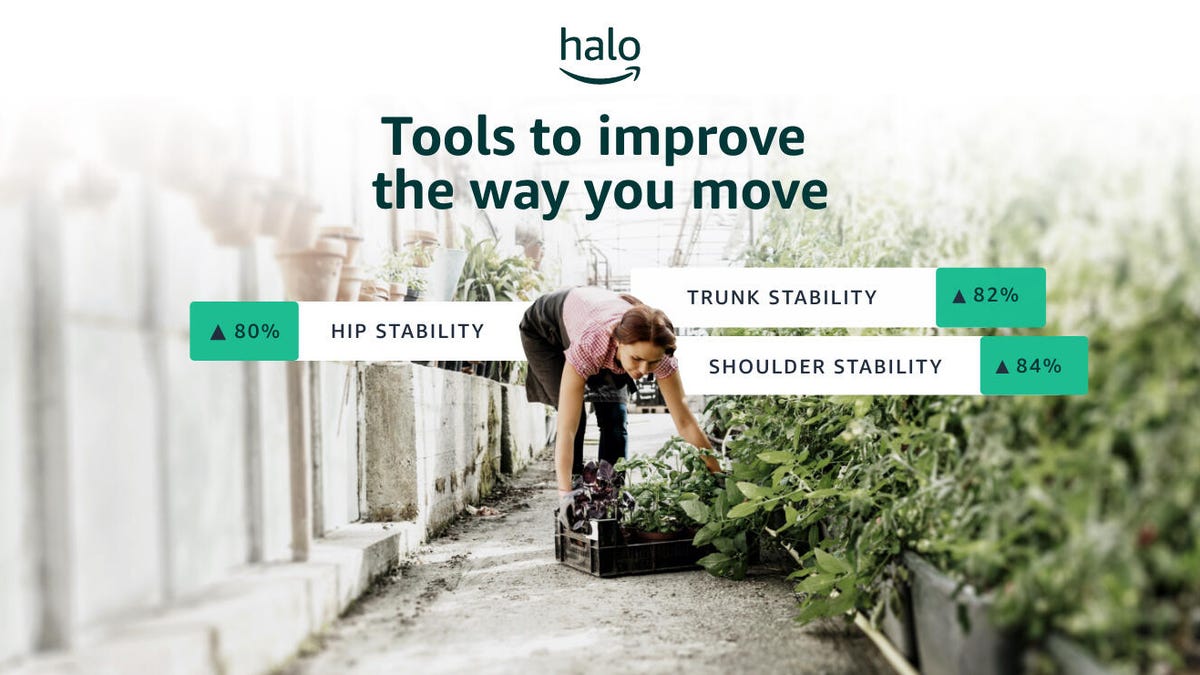Amazon Halo will now scan your body to improve flexibility
Movement Health is Amazon's second camera-based fitness tool, following up on Halo.

Amazon's new body movement analysis tool for Halo uses a phone camera to measure flexibility and fitness.
Last year, Amazon launched its fitness and health platform, Halo. While the subscription-based service mostly leans on a heart-rate sensor-enabled band for its daily sleep and activity tracking, there's a component to the service that uses phone cameras for AI-based body analysis. Last year, that camera-scanning feature analyzed body fat. A new phone-camera-enabled feature, Movement Health, aims to analyze body flexibility. It arrives later this month.
The new feature scans body movement over a series of test exercises and then assigns a Movement score, along with recommended exercises and routines ranging from entry-level to more rigorous workouts. According to Njenga Kariuki, Amazon Halo's product manager, it aims to be as good as having a personal trainer and was designed with the input of Dr. Kelly Starrett, a trainer and personal coach who worked with Amazon's Halo team, and who delivers workout guidance in the new Halo app feature.
The analysis takes about 10 minutes, and uses five types of activity: single leg balances, forward lunges, overhead squats, overhead reaches and feet together squats. The body scanning AI analyzes movement and uploads encrypted data to Amazon's cloud, and delivers a 100-point-range Movement score that blends breakdowns of posture, mobility and stability across the trunk, hips, lower body and shoulders.
How the Movement feature's exercise programs will look.
According to Amazon, the body scan data is deleted when the results are ready. It's a similar privacy promise to the camera-based body scan feature that launched with Halo last year, which analyzed estimated body fat.
In a recent video chat, Kariuki says that Movement Health's capabilities took longer to get right, but lean on similar types of machine learning algorithms for camera-based body tracking. It's not known yet how accurate the service will be at recognizing all body types and movement, and how helpful follow-up movement exercises and workouts will be. Amazon says the Halo band will recognize exercises to track completion of recommended follow-up routines.
While Amazon promises that the Movement Health assessment is simple and only takes several minutes to do a one-time analysis of movement health, it also sounds like the type of extra stress that many people might not want to deal with. It's unclear how Amazon could encourage anyone to try setting up their phone for a scan like this. But the way that the Halo band aims to be more aware of body movement health and flexibility is reminiscent of Apple's recent mobility-tracking health features on the Apple Watch, but with the added dimension of camera-based body analysis.
It also sounds like an interesting further stepping-stone for how Amazon may further blend its health platform with camera-based devices. The feature only works on phones paired with the Halo band right now, but it would make a lot of sense if it worked on camera-based Amazon smart screens. "That's certainly something I anticipate we'll look at in the future," Amazon's Kariuki says.

